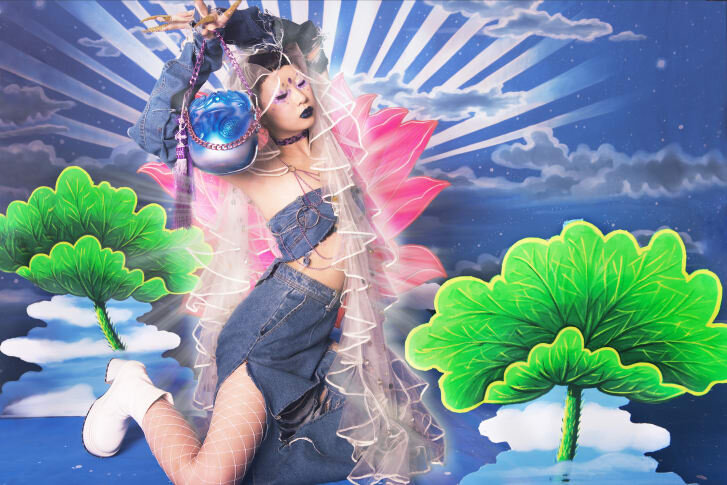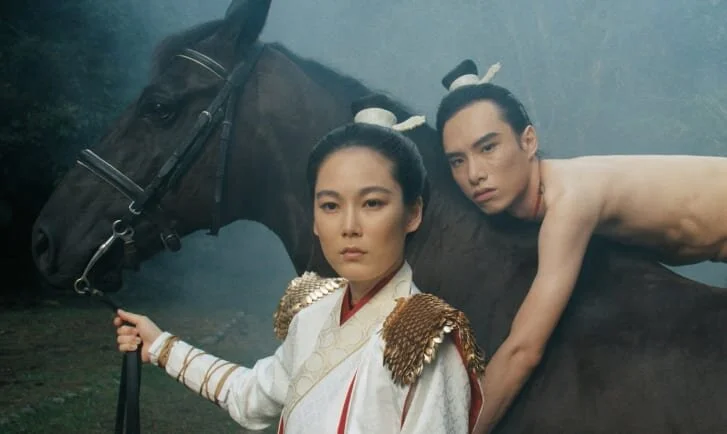GAY-FRIENDLY TAIWAN IS A SAFE(R) HAVEN FOR QUEER ART IN ASIA
Photographer Su Misu’s work explores gender identity, sexuality and bondage
The relative freedoms of Taiwan’s LGBTQ artists, when compared to Malaysia, Brunei and some areas of Indonesia where homosexuality is a punishable crime, are stark.
According to photographer Su Misu, Taiwan’s LGBTQ visual artists are exploring new forms of creative expression, like never before,
She told CNN,
“People are also beginning to construct the histories of the LGBTQI movement in Taiwan, calling for others to participate and study it. All this can help the gay community, which focuses on different issues, to thrive.”
Even before Taiwan’s constitutional court paved the way for the marriage law by declaring same-sex marriage a legal right, LGBTQ artists in Taiwan enjoyed a level of creative freedom not found in many other parts of Asia.
A new report on workplace equality found that the territory’s art sector was a place where respondents felt “most comfortable” about coming out to co-workers.
That, along with with the island’s generous public arts funding, has created an environment for LGBTQ art to flourish.
Still from digital filmmaker Wang Jun-Jieh’s Passion,
from Spectrosynthesis exhibit in 2017
With a population of some 24 million, Taiwan, officially the Republic of China, borders mainland China to the northwest, Japan to the northeast, and the Philippines to the south.
In 2017, Spectrosynthesis — Asian LGBTQ Issues and Art Now was billed as Asia’s first major LGBTQ exhibit, featuring over 50 works by 22 artists (including Hong Kong, mainland China and Singapore) addressing a range of topics, from forbidden love to sexual violence.
The show was staged at Taipei’s Museum of Contemporary Art (MOCA), reaching a more mainstream audience.
Patrick Sun, founder of Sunpride Foundation, who organized the exhibit says,
“If we do a show at a private gallery then I’m sure all my friends would come. But we want to talk to the general public.”
Avant-garde filmmaker Su Hui-Yu said the show was a
“political victory.
In Taiwan, it represented the changing of the wave (that) even a public museum would love to curate the show. It’s more symbolic in a political dimension than in (an) artistic one. But I think it encouraged art students a lot.”
One of Su’s recent projects The Glamorous Boys of Tang, a homoerotic fantasy movie featuring orgies, killings and an exorcism, was released without parts of the original screenplay, as Su believes it was deemed “inappropriate” in conservative 80s Taiwan.
“There was already a strong tradition of queer study (and) queer art in Taiwan since the 1990s (and) since the lifting of martial law.”
The country was under military rule until 1987.
Sun said that this new freedom, might mean that organizations like his might, in an ideal future, will no longer need to exist. But given the widespread challenges facing Asia’s gay artists, he said,
“In the next 10 or 15 years we have a lot of work to do. So we can worry about that when the world has changed!”
nstallation of Fu-Sheng KU’s The Room at the Top of the Stairs at Spectrosynthesis in 2017
Ku’s The Room at the Top of the Stairs
Tzeng Yi-Hsin’s Olympia, based on Manet’s painting of the same name
Tzeng Yi-Hsin’s’ series My Dear Lovers” defaced various paintings and photographs
Train by Xi Ya Die, 2017
Still from Su Hui-Yu’s The Glamorous Boys of Tang, based on scenes
from his screenplay of a 1985 homoerotic fantasy movie
(via CNN)









